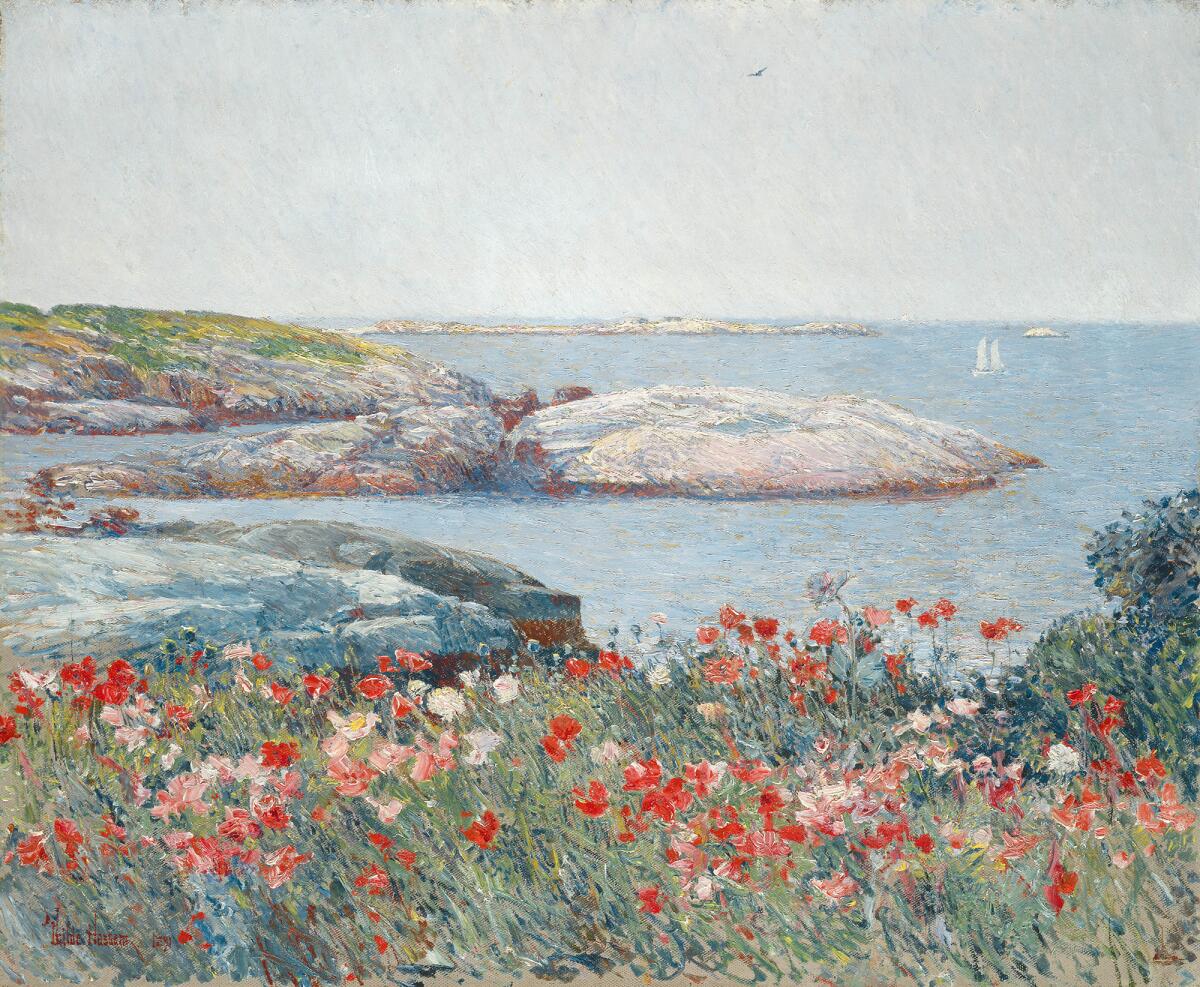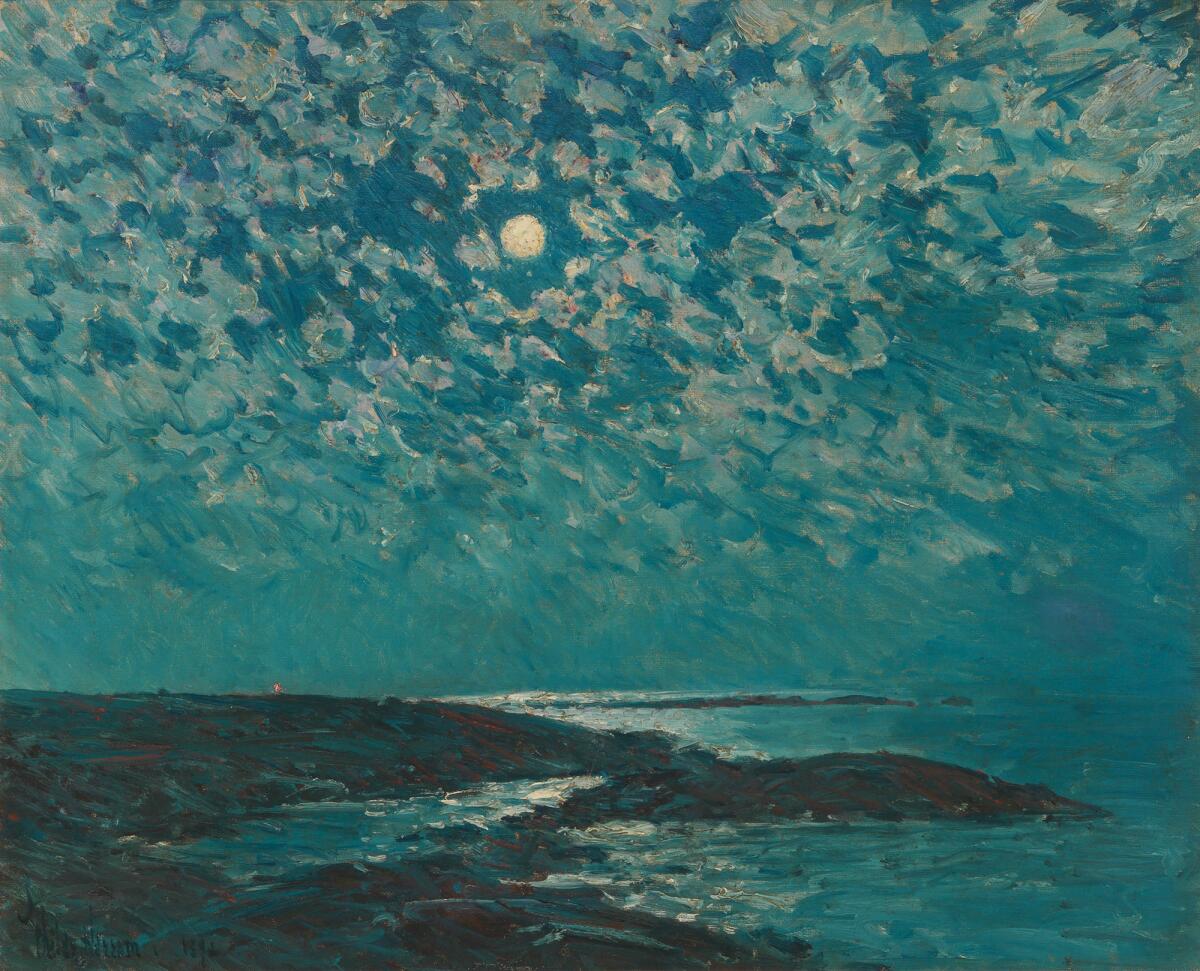The quest to retrace the tracks of seascape painter Childe Hassam
- Share via
The Isles of Shoals is an archipelago of nine islands six miles off the Atlantic coasts of New Hampshire and Maine. The largest, Appledore Island, characterized by rocky coves, granite gorges, sweeping seascapes and the grand Appledore House hotel, was a prime vacationers’ destination in the 19th century — and the inspiration for American Impressionist painter Childe Hassam.
Beginning in 1886, Hassam visited Appledore every summer for nearly three decades, producing about 300 works. Forty-two of the oil and watercolor landscapes are the subject of a traveling exhibition and the book “American Impressionist: Childe Hassam and the Island of Shoals.”
SIGN UP for the free Essential Arts & Culture newsletter »
Currently on view at the Peabody Essex Museum in Salem, Mass., the exhibition also includes 12 black and white photographs by Shoals resident Alexandra de Steiguer comparing modern-day locations with Hassam’s interpretations.
“Being able to compare these sites allowed us to analyze the body of work with how much realism is actual underpinning his impressionism,” said Austen Barron Bailly, Peabody Essex’s curator of American art.
She explained how Appledore poet and mentor Celia Thaxter invited the revered painter to the island and folded him into her salon, which through the years included literary figures such as Nathaniel Hawthorne and Ralph Waldo Emerson.
“Thaxter was so taken with Hassam’s subsequent work she commissioned him to create the illustrations for her book, ‘An Island Garden,’” Bailly said. “It was the cornerstone of his experience on the Island.”
The exhibit is a collaboration between Peabody Essex; John W. Coffey, deputy director for art at the North Carolina Museum of Art; and the Shoals Marine Laboratory. It originated from Coffey’s curiosity and desire to find Hassam’s vantage points.
“We were able to chart his movements on the island based on the subject matter and their dates,” said Bailly, former assistant curator of American art at the Los Angeles County Museum of Art.

Thaxter’s bright red and white garden flowers in “Poppies” (1891) reveal the painter’s closeness to the water’s edge.
“It’s an extraordinary example of Hassam’s characteristic freestyle brush work,” Bailly said. “His brush is loaded with lots of oil paint in scarlets and pale pinks. You get a sense of the movement, texture and lusciousness of the painted surface.”
“Moonlight” is a magical, blue-tinged nocturnal seascape.
“You get the impression he was painting under the light of the moon,” Bailly said. “However, when our scientists examined it closely, they were shocked to realize a storm had come through during that July and August of 1892 and Hassam was actually capturing an altocumulus cloud formation.”

Follow The Times’ arts team @culturemonster.
ALSO
For photographer Gil Mares, the Port of L.A. is his supermodel
Georgia O'Keeffe's early watercolor paintings: Vivid, free-wheeling and full of surprise
The biggest entertainment stories
Get our big stories about Hollywood, film, television, music, arts, culture and more right in your inbox as soon as they publish.
You may occasionally receive promotional content from the Los Angeles Times.







